
March 6, 2024
Few adults (23%) believe the U.S. should take a more active role in solving global problems. Thirty-six percent feel the country’s current level of involvement is about right and 40% prefer the country adopt a less active role in foreign affairs.
Regarding current conflicts, there is little support for the country to take a more active role with either the war between Israel and Hamas or the war between Ukraine and Russia.
Only about a quarter of each party feel the U.S. should become more active in solving the world’s problems, but Democrats tend to feel the current level of U.S. involvement is about right and Republicans would like to see the country step back.
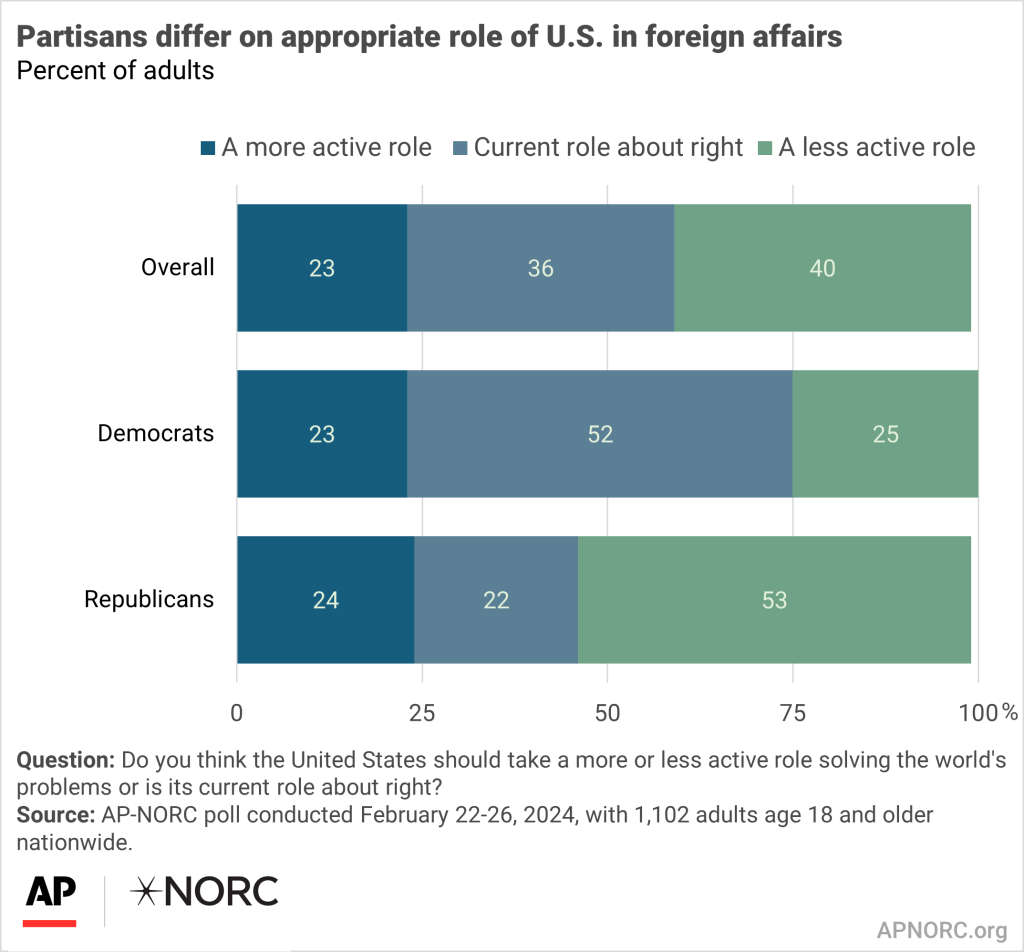
Sixty-two percent disapprove of President Biden’s handling of foreign policy, including 90% of Republicans and 33% of Democrats. Most adults who approve of how Biden handles foreign policy believe the country’s role in global affairs is about right (57%). Half who disapprove want the country to be less involved (52%).
About 40% consider the country’s level of involvement in the wars in Ukraine and Gaza to be about right. Thirty-six percent believe the U.S. should take a less active role in either conflict. Only 1 in 5 adults desire a more active U.S. role in Ukraine or Israel.
Democrats are more likely than Republicans to say the U.S. should be more involved in the war between Russia and Ukraine but feel similarly to Republicans about more involvement in the conflict between Israel and Hamas. Half of Republicans support a less active U.S. role in Ukraine’s conflict, fewer support a less active role in Israel’s conflict.
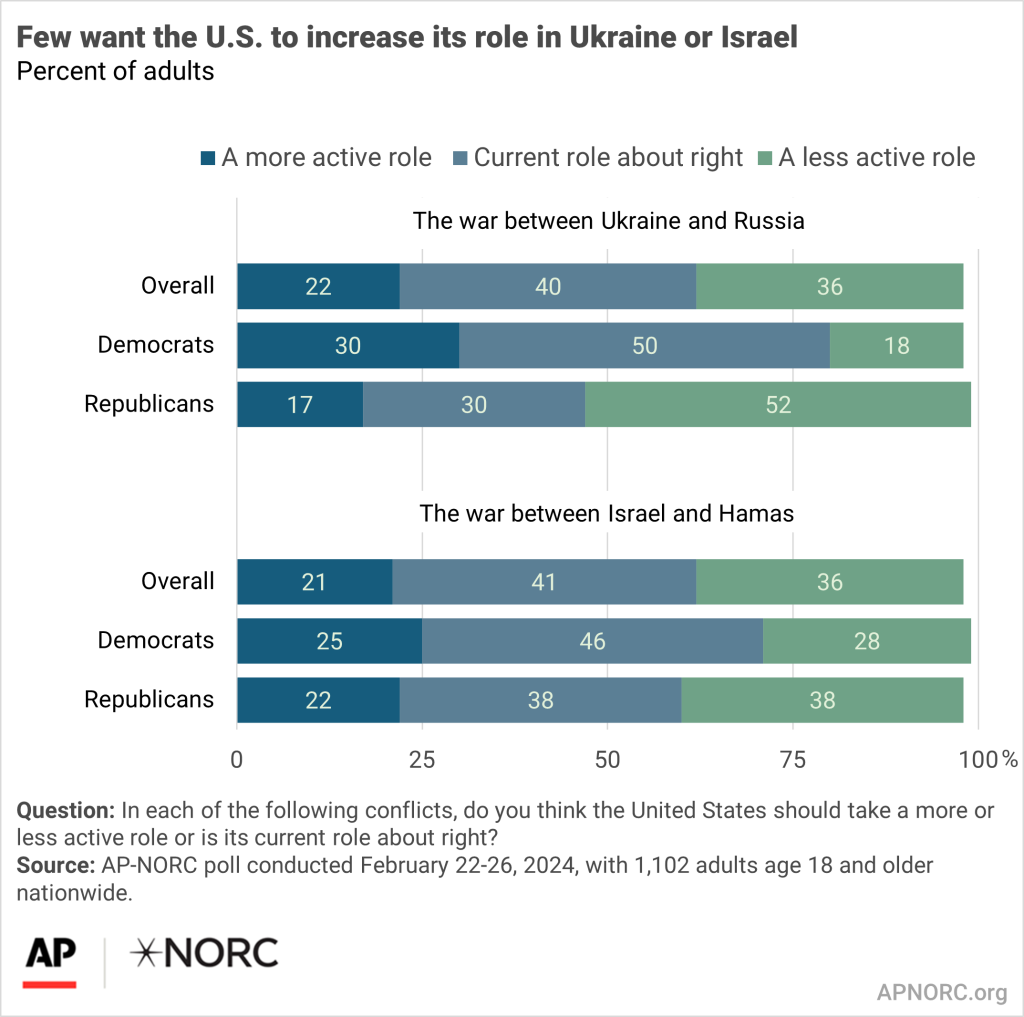
Thirty-three percent of the public believe the U.S. is currently spending the appropriate amount on aid to Ukraine, while 37% say it is spending too much and 27% think it’s too little. Democrats are more likely than Republicans to say the U.S. isn’t sending enough aid to Ukraine (44% vs. 14%).
About 4 in 10 say the U.S. is sending the right amount of aid to support Israel in its war and providing humanitarian relief to Palestinians. Thirty-nine percent say too much aid is being provided to Israel for the war while 28% think the U.S. is sending too much aid to the Palestinians. Only 19% think Israel is receiving too little help from the U.S. for the war, while 31% say the Palestinians are getting too little humanitarian relief.
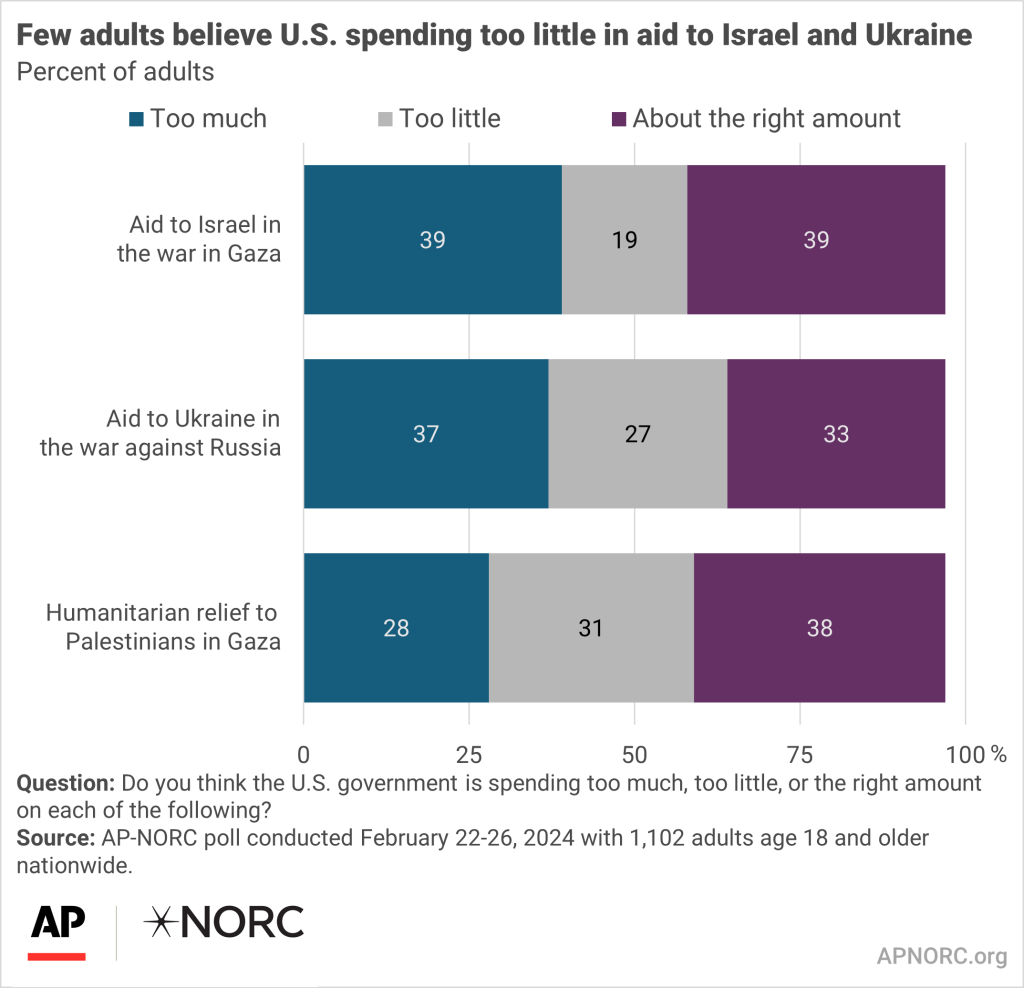
Six in 10 adults support economic sanctions on Russia, while half favor providing weapons to Ukraine. There is less support for directly funding Ukraine or accepting Ukrainian refugees.
Fifty-three percent of Democrats favor directly funding Ukraine compared with 19% of Republicans. Democrats are also more likely than Republicans to support accepting Ukrainian refugees (61% vs 27%) and providing Ukraine with weapons (68% vs 39%).
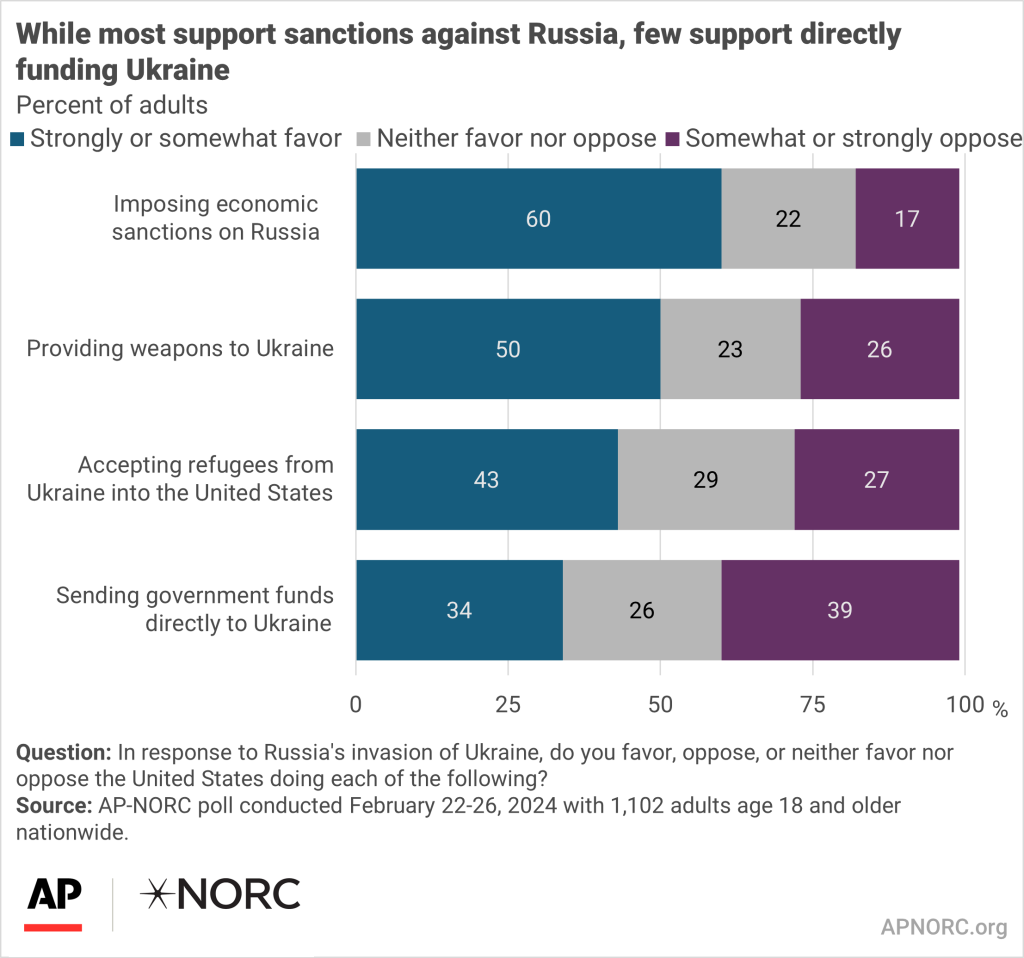
In terms of foreign policy goals associated with both wars, Democrats are more likely than Republicans to say it’s important to help negotiate a permanent ceasefire between Israel and Hamas (62% vs. 34%) and between Russia and Ukraine (59% vs. 41%). Democrats are also more likely to support providing humanitarian relief to Palestinians in Gaza (58% vs. 15%).
Republicans are more likely than Democrats consider aid to Israel’s military as an important foreign policy goal (36% vs 20%).
Democrats are more supportive than Republicans of providing military aid to Ukraine (58% vs. 24%). Democrats are also more inclined than Republicans to say the U.S. should stop Russia from gaining additional Ukraine territory (67% vs 37%) and help Ukraine to regain territory (56% vs. 24%).
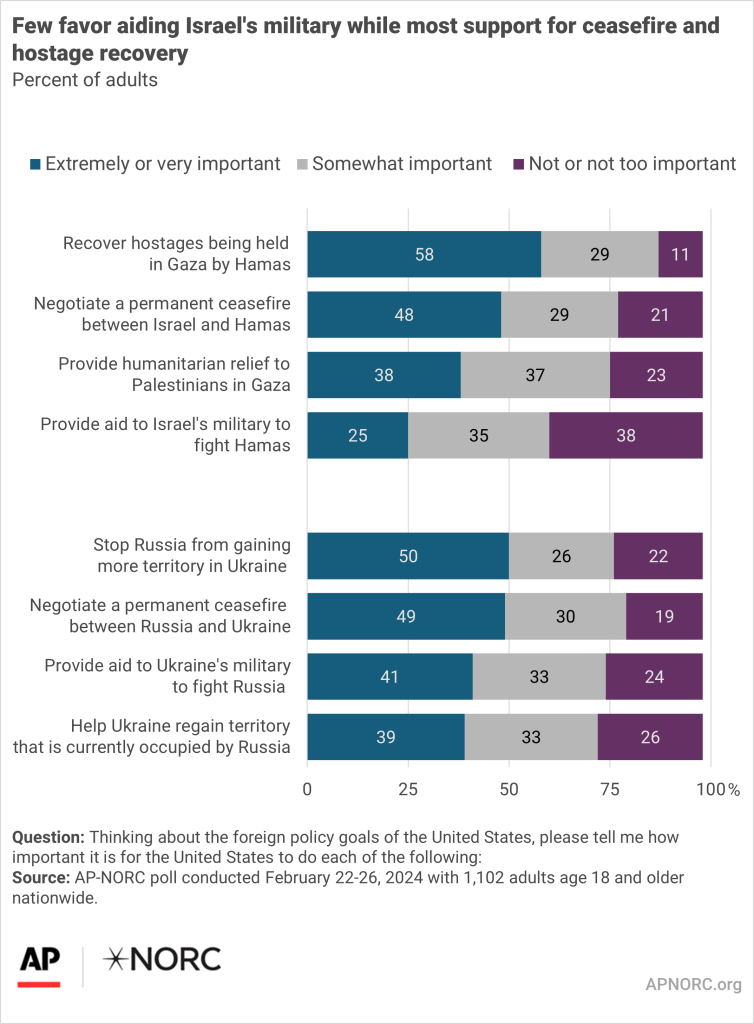
There is little optimism among the public that any of these goals in either Ukraine or Israel can be achieved, however.
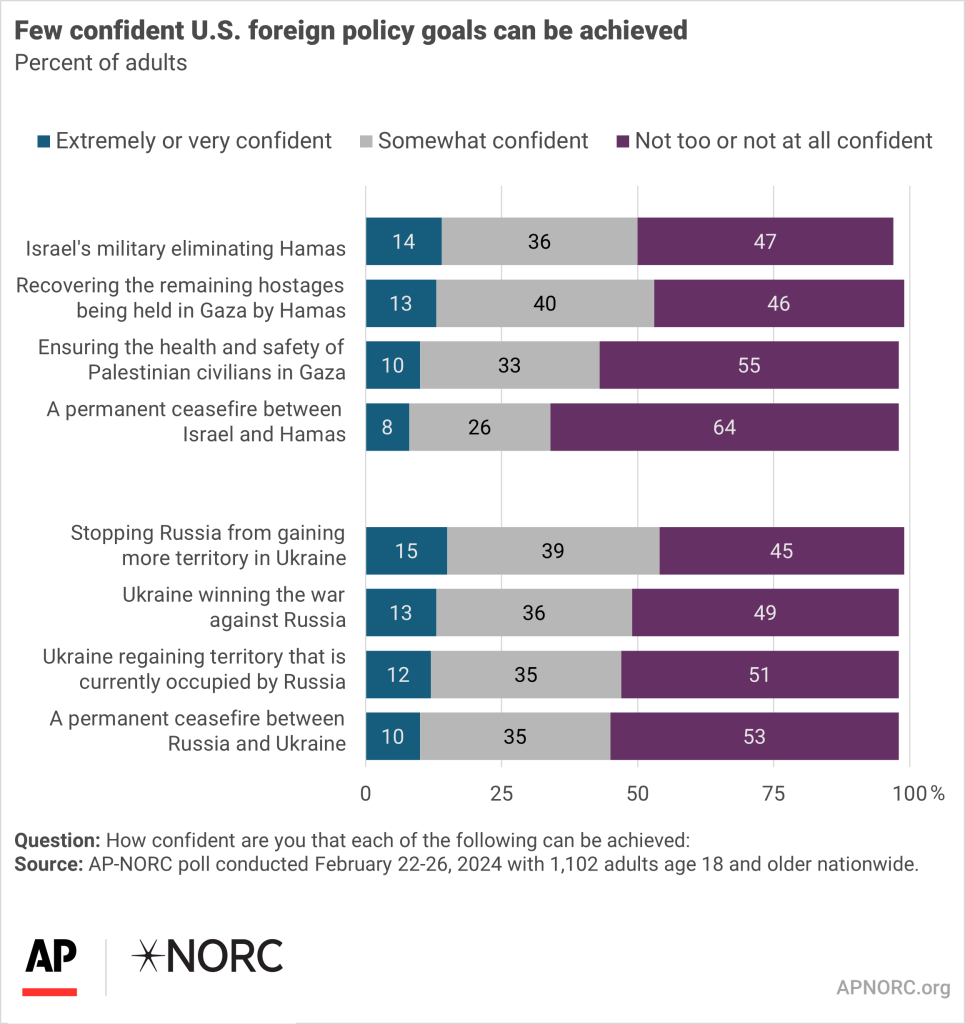
Many adults, both Republicans and Democrats, are concerned that the U.S. will be drawn into these wars and that these wars will escalate into broader conflicts in the region.
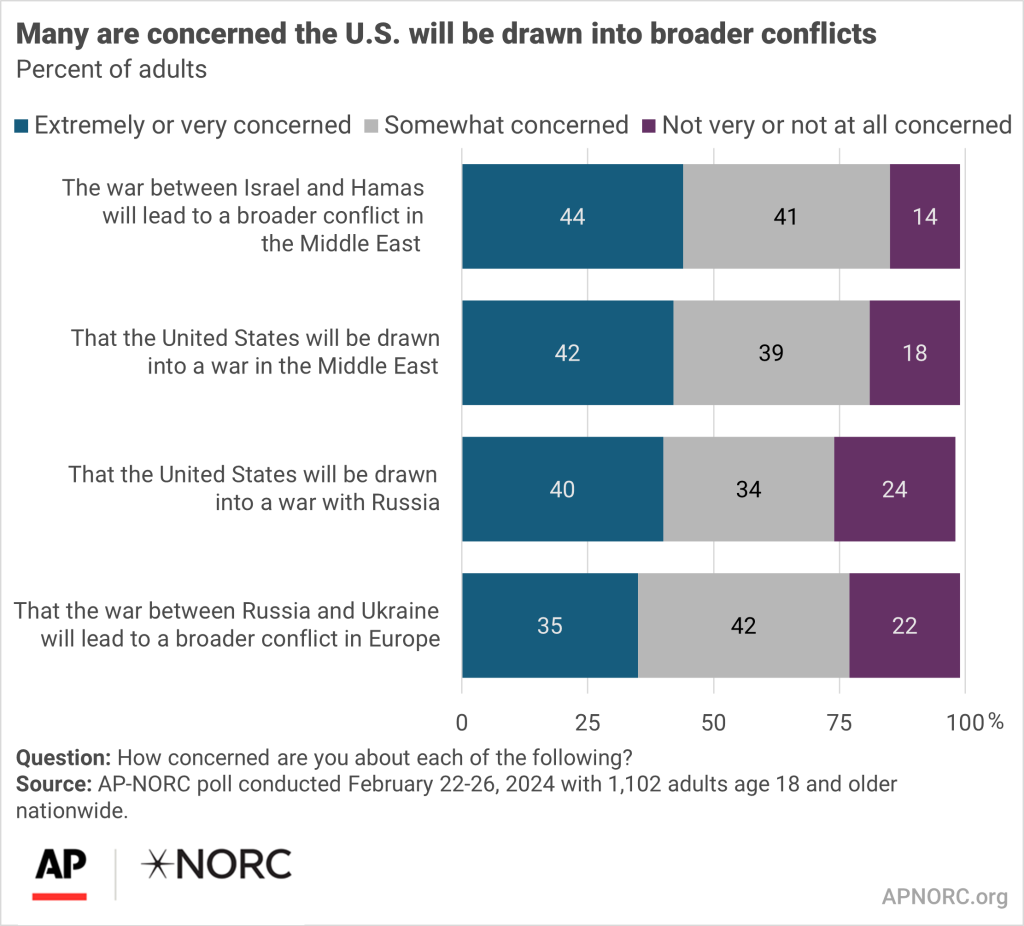
The nationwide poll was conducted February 22-26, 2024 using the AmeriSpeak® Panel, the probability-based panel of NORC at the University of Chicago. Online and telephone interviews using landlines and cell phones were conducted with 1,102 adults. The margin of sampling error is +/- 4.1 percentage points.
• Suggested Citation: AP-NORC Center for Public Affairs Research. (February 2024). “Few want the U.S. to be more active in solving global problems.” https://apnorc.org/projects/few-want-the-u-s-to-be-more-active-in-solving-global-problems






